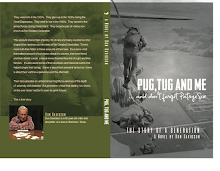Webster defines treason as: "Attempting by overt acts to overthrow the government of the state to which the offender owes allegiance." Of recent I've had cause to pause and contemplate just where is the point at which overt acts become attempts to overthrow the government. Just exactly where is the line to be crossed for it to become treason. Are overt acts to "transform" the government borderline treason? Just what exactly is meant by transform. Again, Webster defines transform as: "to change in composition or structure; to change in character or condition. Transform implies a major change in form, nature or function." Does the attempt to overthrow have to be violent to be treason or can it be by stealth transformation?
A friend recently sent me the following quote which I think is very appropriate for todays political environment in our government.
A nation can survive its fools, and even the ambitious. But it cannot survive treason from within. An enemy at the gates is less formidable, for he is known and he carries his banners openly. But the traitor moves among those within the gate freely, his sly whispers rustling through all the alleys, heard in the very halls of government itself. For the traitor appears not a traitor, he speaks in accents familiar to his victims, and he wears their face and their garments, and he appeals to the baseness that lies deep in the hearts of all men. He rots the soul of a nation, he works secretly and unknown in the night to undermine the pillars of a city, he infects the body politic so that it can no longer resist. A murderer is less to be feared. ~ Cicero, 42 B.C.
We must be vigilant!


0 Comments:
Post a Comment
<< Home